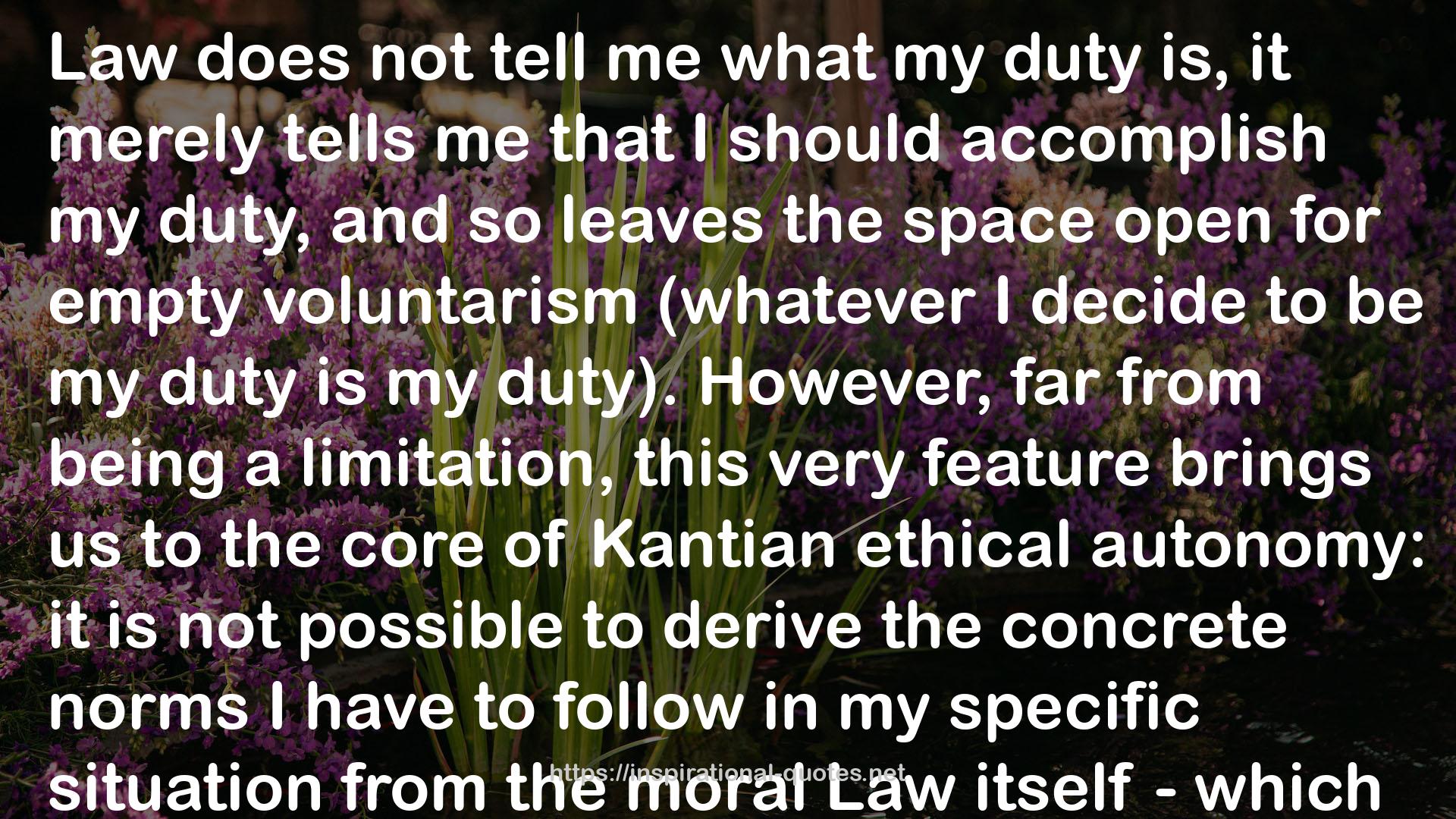" Law does not tell me what my duty is, it merely tells me that I should accomplish my duty, and so leaves the space open for empty voluntarism (whatever I decide to be my duty is my duty). However, far from being a limitation, this very feature brings us to the core of Kantian ethical autonomy: it is not possible to derive the concrete norms I have to follow in my specific situation from the moral Law itself - which means that the subject herself has to assume responsibility of translating the abstract injunction of the moral Law into a series of concrete obligations. The full acceptance of this paradox compels us to reject any reference to duty as an excuse: 'I know this is heavy and can be painful, but what can I do, this is my duty...'
Kant's ethics of unconditional duty is often taken as justifying such an attitude - no wonder Adolf Eichmann himself referred to Kantian ethics when he tried to justify his role in planning and executing the Holocaust: he was just doing his duty and obeying the Fuhrer's orders. However, the aim of Kant's emphasis on the subject's full moral autonomy and responsibility is precisely to prevent any such manoeuvre of displacing the blame onto some figure of the big Other. "
― Maximilien Robespierre , Virtue and Terror
